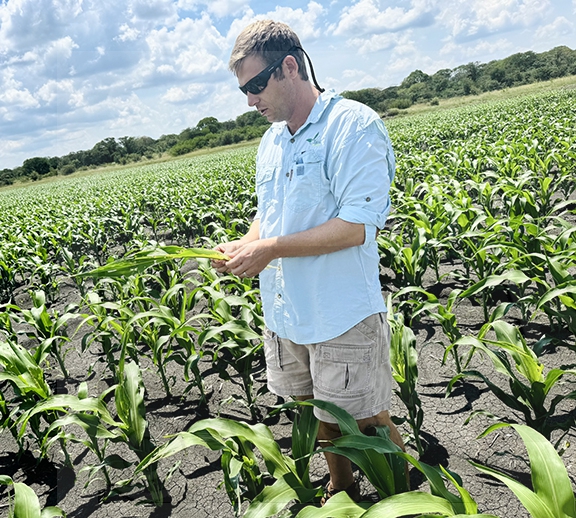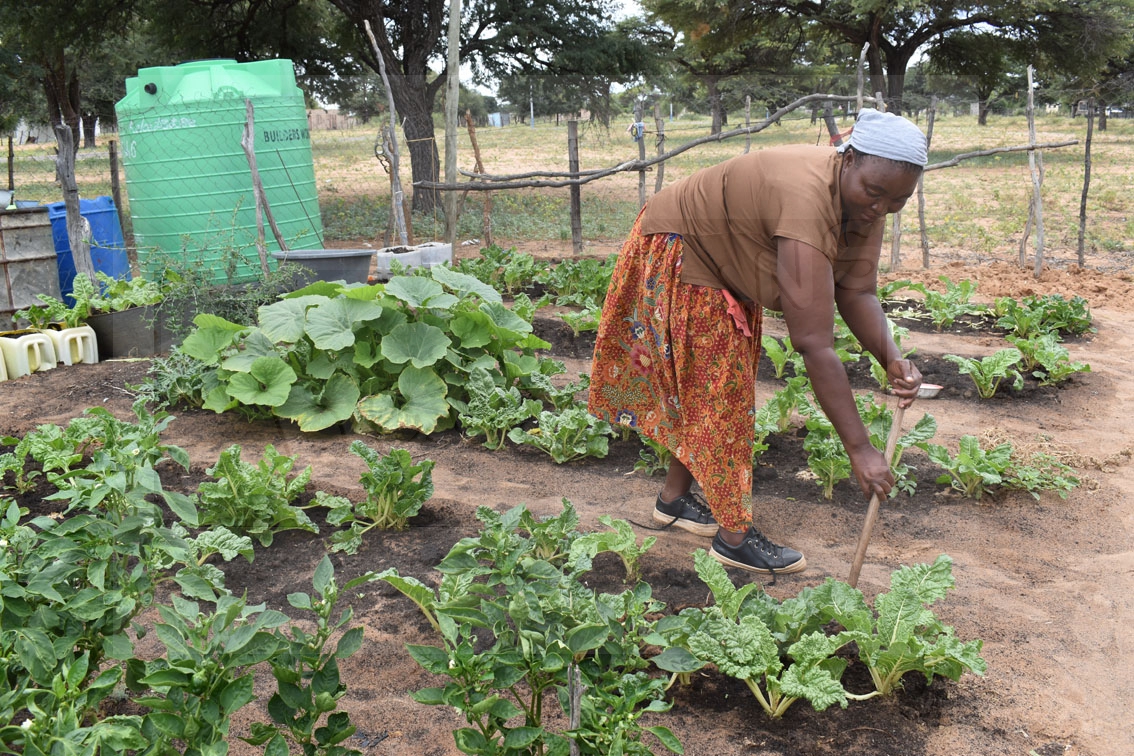Private sector led economy vital
22 Jun 2025
For decades, the economy of Botswana has been predominantly anchored in the mineral and agricultural sectors, with much of the economic growth being government generated.
This dependency had led to ongoing vulnerabilities, and with government funds depleted, it highlight the need for urgent economic restructuring.
The Managing Director of ANBA Chemicals/ANBO Farms, Mr Andrew Seeletso said this during the Tonota, Tutume and Masunga (TOTUMA) Arable Commercial Farmers Association Harvest Day in Botalaote on Friday.
He said developing and diversifying export markets through a vibrant private sector, creating products and services that met both local and international standards, capitalising on global market opportunities for crops such as Hemp, Safflower and Moringa, were essential.
Therefore, Mr Seeletso said forums such as farmers day had historically served as incubators for successful enterprises across Botswana and must continue to be nurtured as catalysts for productivity and market development.
He said the theme: Forging Ahead For Food Security Amid The Effect of Climate Change was both timely and strategically aligned with Botswana’s economic transformation agenda adding that the recent government initiatives through the Ministry of Lands and Agriculture to facilitate cluster formation was encouraging.
Mr Seeletso, however, said this approach enabled collective action, enhanced bargaining power, and facilitated compliance with international market requirements and also served as a critical platform for technology and knowledge transfer, networking between farmers, suppliers, traders and extension officers.
“This could market products and services to local and international markets and build sustainable agricultural value chains,” he said.
Despite declining contributions relative to other sectors, Mr Seeletso said agriculture remained fundamental to the economy as approximately 80 per cent of the population derived their livelihood from farming.
He indicated that in a total of 1 065 hectares of land utilised in the TOTUMA Arable Commercial area, a total of 767 hectares comprised arable farming activities while 298 hectares were used for integrated farming.
Mr Seeletso also observed that government had implemented numerous supportive programmes including ARAP, NAMPAAD, LIMID and currently Temo Letlotlo.
As such, he urged the youth to embrace these opportunities as successful agricultural performance had the potential to address critical national challenges including food security, poverty, unemployment and economic diversification.
TOTUMA chairperson, Mr Steven Pillar said small-scale farmers produced less harvest because they do not adhere to improving their soils, adding that all fields must have a track record.
He observed that in farming, prevalence of weeds and poor rains were not excuses as there were ways to remedy such situations.
Mr Pillar said farmers must improve their agronomic practices and avoid over reliance on government noting that at times seeds took long to be issued to farmers because of late payments of suppliers.
He encouraged farmers to build small dams to trap water and start to plant high yield crops in order to increase their harvest.
This year, he said, farmers did not plough in large numbers as compared to the previous year as last year 18 farmers ploughed without any subsidy as compared to five this year.
Last year and the previous year, only two farmers took loans from the National Development Bank each year.
Mr Pillar said in 2024, there were only 13 micro farmers while this year they increased to 21. As for hectares of land ploughed, he said in 2024 there were 566 hectares ploughed while this year only 240 hectares were ploughed.
North East District Crop Production Officer, Ms. Goitseone Nvelashe said all categories of crops were doing well in the North East District. She said Botswana had national demand in all crop categories that was yet not met and this led to buying from other countries thus increasing the import bill.
Ms Nvelashe noted that about three years back, farming was moving in an upward and downward trend but more could be achieved because in one hectare, a subsistence farmer could harvest up to 40 bags.
When sharing a word of encouragement to farmers, a 13-year-old Standard 7 pupil of Legola Primary School in Botalaote, Patience Mogibelo said the country was facing undeniable reality of climate change that had an impact on food security.
She said these challenges were as significant as the TOTUMA harvest day, adding that farmers had a collective goal of achieving an opportunity to forge a more resilient and sustainable future for all. ENDS
Source : BOPA
Author : Goweditswe Kome
Location : Botalaote
Event : Interview
Date : 22 Jun 2025





